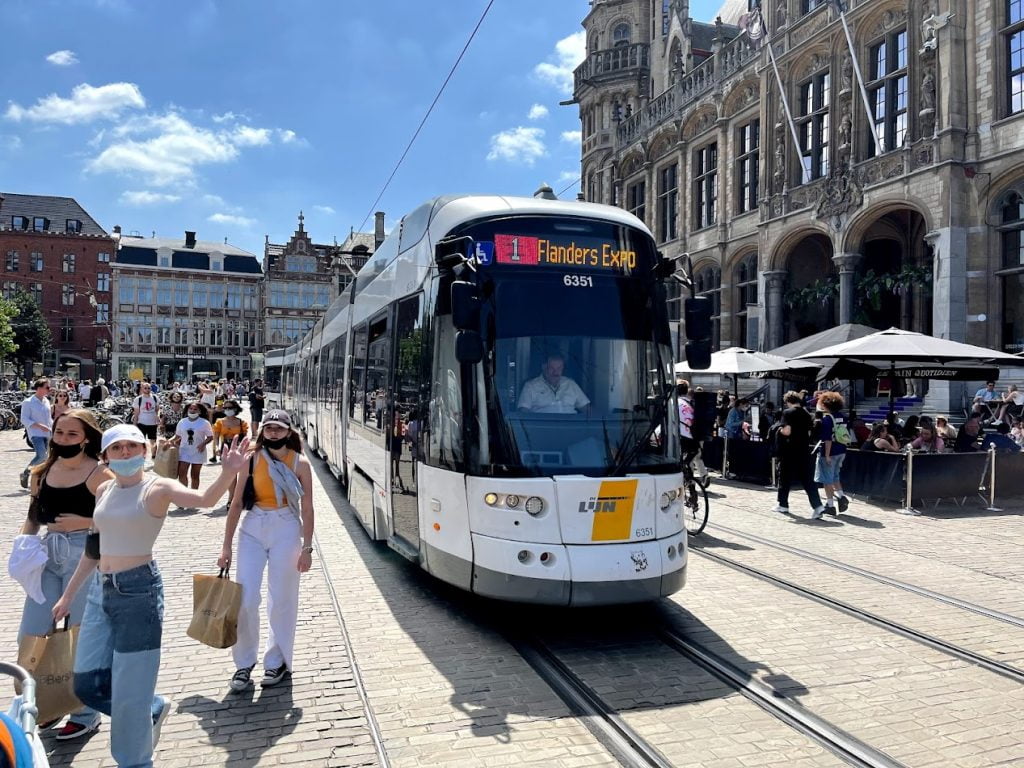Tram 1 making its way through the Veldstraat: we will not see this image again for four years from Saturday.
Ghent is undergoing a major change in its public transport system, in particular the temporary closure of tram line 1 between Sint-Pieters station and Korenmarkt. This measure, which will take effect from January 6, 2024 and will last for a period of at least four years, is necessary for the renewal of the tram tracks. The importance of this renewal is crucial, given the current state of the tram line, which, according to Ghent's Alderman for Mobility, Filip Watteeuw, is “worn down to the threads”.
The temporary closure of tram line 1 evokes mixed feelings among the Ghent population. While the need for the work is widely recognised, there has also been criticism over the impact it will have on the city's public transport. Alderman Watteeuw acknowledges in a statement in De Standaard that this change is a “loss for public transport in Ghent”, but at the same time emphasizes that there is no other choice.
In the first months of the work, until the summer, a shuttle bus will take over the service of tram line 1. This bus will stop at the usual stops between the station and Korenmarkt. However, after the summer this shuttle service will disappear, which brings additional challenges for travelers.
Few travelers on line 1 seem to know or realize it, but these are the last trips on the busiest route in Flanders. The reconstruction will take four years, until well into 2028.

This development is part of a larger transport plan by De Lijn, in which the tram lines in Ghent will be significantly modified. The current offering of three long tram lines will be replaced by four shorter routes. These new lines, which use the existing tracks, will connect different parts of the city: from Flanders Expo to Gentbrugge, from Evergem to Melle, from Zwijnaarde to Moscou, and from the University Hospital to the center.
In addition, many stops are being deleted throughout Flanders, including Ghent. Regular buses will no longer stop at almost 50 places. As an alternative, De Lijn is introducing so-called flex buses, where travelers must reserve a ride in advance. This service is only available if no other transportation alternatives are available.
This extensive plan from De Lijn entails significant changes for the daily traveler in Ghent. It reflects the continuous evolution and adaptation of the city's public transport system, aimed at improving efficiency and sustainability, but also the challenges associated with such large-scale projects.
Financing
In the meantime, it became known that De Lijn, the Flemish transport company, is requesting additional resources now that it is facing an important financial challenge. With a view to greening their fleet and ensuring efficient public transport, the company is making a significant request for additional financing to the next Flemish government. This request includes an additional budget of 300 to 370 million euros per year.
This call comes at a time when some travelers are at risk transport poverty a situation where access to affordable and reliable public transport is limited or absent. This can have major consequences for mobility and accessibility within Flanders, especially for those who rely on public transport for their daily needs.
Despite this urgent need for additional resources, Lydia Peeters, the Flemish Minister of Mobility of Open VLD, has indicated that additional funding before 2027 is unlikely. The reason for this is that the budget has already been recorded in the Operational and Financial Plan (ODC), a planning tool used for the management and allocation of resources within the government.




